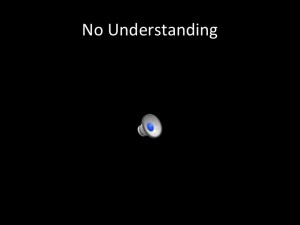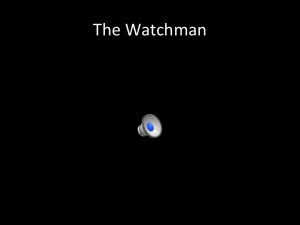With my mind still whirling from the Ecologies of the Inhuman event last Friday, and while greatly enjoying all the post-event e-discussions — helpfully curated by Jeffrey at In the Middle — here’s my talk on shipwreck, Dylan’s new song “Tempest,” and post-equilibrium ecologies. The soundtrack to my talk was the title track of the new album, also named “Tempest.” I won’t paste in the audio clips I played, but I’ll show in the the images with their (now non-functional) audio prompts. I do recommend giving his 35th album a listen.
My talk opened with an instrumental clip, and then goes like this — 
That’s the opening to Bob Dylan’s new waltz about the Titanic, titled “Tempest,” which will be my main text. But I’ll start with Michel Serres: “I live in shipwreck alert,” Serres writes. “Always in dire straits, untied, lying to, ready to founder’’ (124). I like this sentiment, but lately it’s been bugging me. It’s not quite right. It names my very deed of love for our inhuman environment but, as a Lear’s middle daughter might say, it comes too short
Shipwreck isn’t something to prepare for, something that’s about to happen. It’s happening. Now. We’re inside it, not waiting for it.
It’s not so bad inside shipwreck. It becomes easier if you stop hoping that there is solid ground somewhere. My point is that shipwreck — by which I mean the sudden shocking awareness that the vessels that have carried us this far are coming to pieces under our feet — represents a perfectly ordinary way to live. My stalking horse is global warming, but the underlying facts of disruption and disorder precede the anthropocene. Humans have been floundering about inside disorder for a long time. We’ve gotten good at inventing ways to reimagine disorder as order. As I’ve said elsewhere, that’s one of the things literature does well.
Living inside shipwreck sounds less comfortable than “shipwreck alert,” and one key difference involves attitudes toward change. In alert, we’re animated by paranoia and fantasies of structure. We’re pole-axed with dread, afraid of impending loss, melancholy with nostalgia for things we believe we have now. Inside shipwreck, by contrast, as the ship comes apart and water pours in, we’ve no time to waste and an urgent need to get used to being wet
Several things follow from global shipwreck. I’ll focus on three, via Dylan’s new song: The watchman. There is no understanding. The universe opens wide.
He’s Dylan’s Prospero, appearing four times in this crowded song to guide disaster into artistic order. “The watchman, he lay dreaming…” goes the refrain: “He dreamed the Titanic was sinking.” The four watchman stanzas transform disaster into story, distant knowledge into bodily experience, epic possibility into unanswered need.
He watches but can’t tell.
In the historical metaphor the watchman is the one who missed the iceberg, and this figure demotes Prospero from controlling mage to passive dreamer. Shakespeare’s wizard captures fantasies of power, but Dylan’s watchman seals this figure up in an isolated crow’s nest. Nothing to do but watch.
Slide: No Understanding
Shipwrecks are hard to narrate. As a different Shakespearean daughter bullies her father into acknowledging, the human response is sympathy: “O, I have suffered / With those that I saw suffer!” (1.2.5-6). Miranda asks her wizard-watchman-father to feel with her, and with us, to attune ourselves to what sailors fear.
Dylan’s “Tempest” sings Miranda down:
Audio: No Understanding
They waited at the landing
And they tried to understand
But there is no understanding
For the judgments of God’s hand.
No understanding. God’s hand behind the wizard’s curse. This is Bob’s Old Testament thunder-growl, but it sounds oddly freeing. Might it mean we don’t have to be on alert anymore? That we can turn to something else?
Slide: Opens Wide
No understanding is a dour sentiment, and maybe it’s just me who hears aesthetic hope in these lines. I don’t think the song leaves us in despair. That’s not the final force of shipwreck ecology. What if we turn from watchmen and from understanding and focus on overflowing abundance? Everybody’s on board the doomed ship: there’s Leo and Cleo, Wellington and Jim Dandy, Calvin, Blake, and Wilson, Davy the brothel-keeper, Jim Backus and the bishop, even “the rich man, Mr Aster.” The story unfolds through excess – who every heard of a 13-and-1/2-minute pop song, much less a waltz? It’s too much, too many fragments of story and experience and feeling. But it adds up to something –
The ship was going under
The universe had opened wide…
There’s a basic eco-point here. Shipwreck names the core experience, the shock and pressure of the inhuman world on human skin. Being-in-the-world means living inside shipwreck. It’s the story we need to explain, can’t explain, and must tell. A direct encounter: ocean liner meets iceberg, human bodies splash into cold salt water. We want and can’t have distance, perspective, narrative, a story that explains and insulates.
We want the source. Tell me the cause, Muse! But we never get it.
The wetness of the encounter, the brute physicality of shipwreck, won’t let us understand causes. This song, this disaster, the oceanic histories and snatches of poetry that events like the Titanic open up, resonate without rest. The only stability is on the sea floor.
A shipwreck ecology, however, needn’t be a place only of horror or nostalgia. There’s ecstasy in the waters too. Not the relief of having survived or the satisfaction of figuring it out: those things don’t last. But an intellectual tingle that ripples out into the physical world, a willingness to confront the inhumanity of our environment, and an appetite for experience that doesn’t mind getting wet. That’s the direction named reality. And ecology. Also shipwreck.

[…] The concept of a shipwreck society: ❂ […]